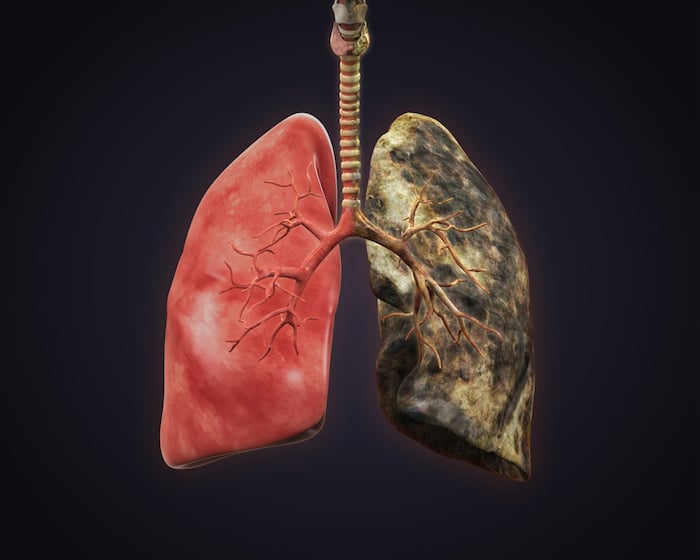Lung cancer, a devastating disease often associated with smoking, is increasingly being diagnosed in individuals with no history of tobacco use. This alarming trend has prompted the medical community to delve deeper into the underlying causes, leading to a greater understanding of the role of genetic mutations in the development of this disease. While smoking remains a significant risk factor, the discovery of these genetic drivers has revolutionized both the diagnosis and treatment of lung cancer.
Our bodies are composed of millions of cells, each containing a complex set of instructions encoded within our genes. These genes dictate how cells grow, divide, and function. However, errors in these genetic instructions, known as mutations, can disrupt cellular processes and lead to uncontrolled cell growth, ultimately resulting in cancer. In lung cancer, these mutations can be either inherited, passed down from generation to generation, or acquired during a person’s lifetime due to environmental exposures or random DNA errors. In regions experiencing rapid industrial development and subsequent environmental changes, the impact of acquired mutations may be particularly significant. These environmental exposures can include pollutants, industrial chemicals, radiation, and certain viral infections.
Several specific gene mutations have been identified as key players in lung cancer development. Mutations in genes such as EGFR, ALK, and KRAS are commonly found in lung cancers. These mutations disrupt normal cellular regulation, effectively removing the brakes on cell growth and accelerating the progression toward tumor formation. The discovery of these specific mutations has been a game-changer in the fight against lung cancer.
The identification of these driver mutations has ushered in a new era of personalized medicine in lung cancer treatment. Targeted therapies, designed to specifically attack cancer cells based on their unique genetic makeup, have emerged as a powerful weapon against the disease. For example, if a patient’s tumor harbors an EGFR mutation, doctors can prescribe a medication that precisely targets and blocks the activity of the mutated EGFR protein, hindering the uncontrolled cell growth driven by the mutation. These targeted therapies often offer greater efficacy and fewer side effects compared to traditional chemotherapy, representing a significant advancement in patient care.
Beyond targeted therapies, the understanding of genetic mutations has also paved the way for the development of immunotherapy, a revolutionary approach that harnesses the power of the body’s own immune system to combat cancer. By identifying specific genetic markers within a tumor, doctors can select immunotherapies that are most likely to be effective for a particular patient. This precision medicine approach tailors treatment to the individual’s unique genetic profile, maximizing the chances of success while minimizing potential side effects.
Early detection remains paramount in the fight against lung cancer. Genetic testing now plays a crucial role in the diagnostic process, allowing doctors to identify specific mutations present in a tumor at the earliest possible stage. This early identification enables prompt and targeted treatment intervention, significantly improving patient outcomes. By recognizing the presence of these mutations early on, physicians can tailor treatment strategies from the outset, increasing the likelihood of successful treatment.
The seemingly invisible world of genetic mutations holds profound implications for lung cancer. While these mutations cannot be seen with the naked eye, their impact is undeniable. Through early genetic testing, personalized treatment strategies, and heightened awareness of the subtle signs our bodies provide, we can effectively combat this devastating disease. Understanding the role of these genetic drivers is crucial for empowering patients and healthcare professionals alike to proactively address lung cancer, shifting the focus from reactive treatment to preventative and personalized care. The ongoing research into genetic mutations continues to refine our understanding of lung cancer and holds the promise of even more targeted and effective therapies in the future.














